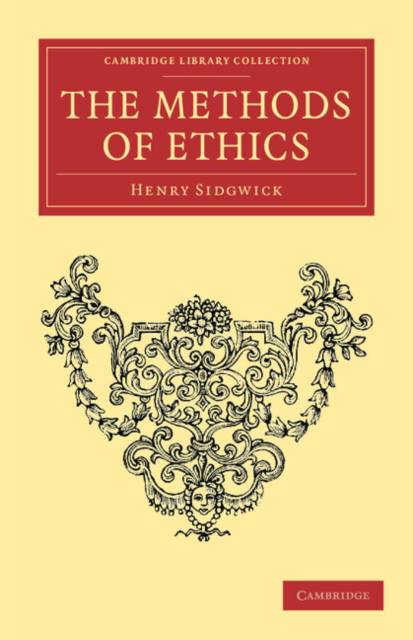
Bedankt voor het vertrouwen het afgelopen jaar! Om jou te bedanken bieden we GRATIS verzending (in België) aan op alles gedurende de hele maand januari.
- Afhalen na 1 uur in een winkel met voorraad
- In januari gratis thuislevering in België
- Ruim aanbod met 7 miljoen producten
Bedankt voor het vertrouwen het afgelopen jaar! Om jou te bedanken bieden we GRATIS verzending (in België) aan op alles gedurende de hele maand januari.
- Afhalen na 1 uur in een winkel met voorraad
- In januari gratis thuislevering in België
- Ruim aanbod met 7 miljoen producten
Zoeken
€ 119,45
+ 238 punten
Uitvoering
Omschrijving
One of the most influential of the Victorian philosophers, Henry Sidgwick (1838-1900) also made important contributions to fields such as economics, political theory, and classics. An active promoter of higher education for women, he founded Cambridge's Newnham College in 1871. He attended Rugby School and then Trinity College, Cambridge, where he remained his whole career. In 1859 he took up a lectureship in classics, and held this post for ten years. In 1869, he moved to a lectureship in moral philosophy, the subject where he left arguably his greatest mark when he produced this work, regarded as his masterpiece. Published in 1874, the book argues the utilitarian approach to ethics, and a systematic and historically sensitive approach to ethical research that influenced utilitarian philosophers well into the twentieth century. It remains a valuable introduction to the philosophy, practice and history of ethics. This reissue includes the 1877 supplement.
Specificaties
Betrokkenen
- Auteur(s):
- Uitgeverij:
Inhoud
- Aantal bladzijden:
- 634
- Taal:
- Engels
- Reeks:
Eigenschappen
- Productcode (EAN):
- 9781108040365
- Verschijningsdatum:
- 1/12/2011
- Uitvoering:
- Paperback
- Formaat:
- Trade paperback (VS)
- Afmetingen:
- 140 mm x 216 mm
- Gewicht:
- 793 g

Alleen bij Standaard Boekhandel
+ 238 punten op je klantenkaart van Standaard Boekhandel
Beoordelingen
We publiceren alleen reviews die voldoen aan de voorwaarden voor reviews. Bekijk onze voorwaarden voor reviews.









